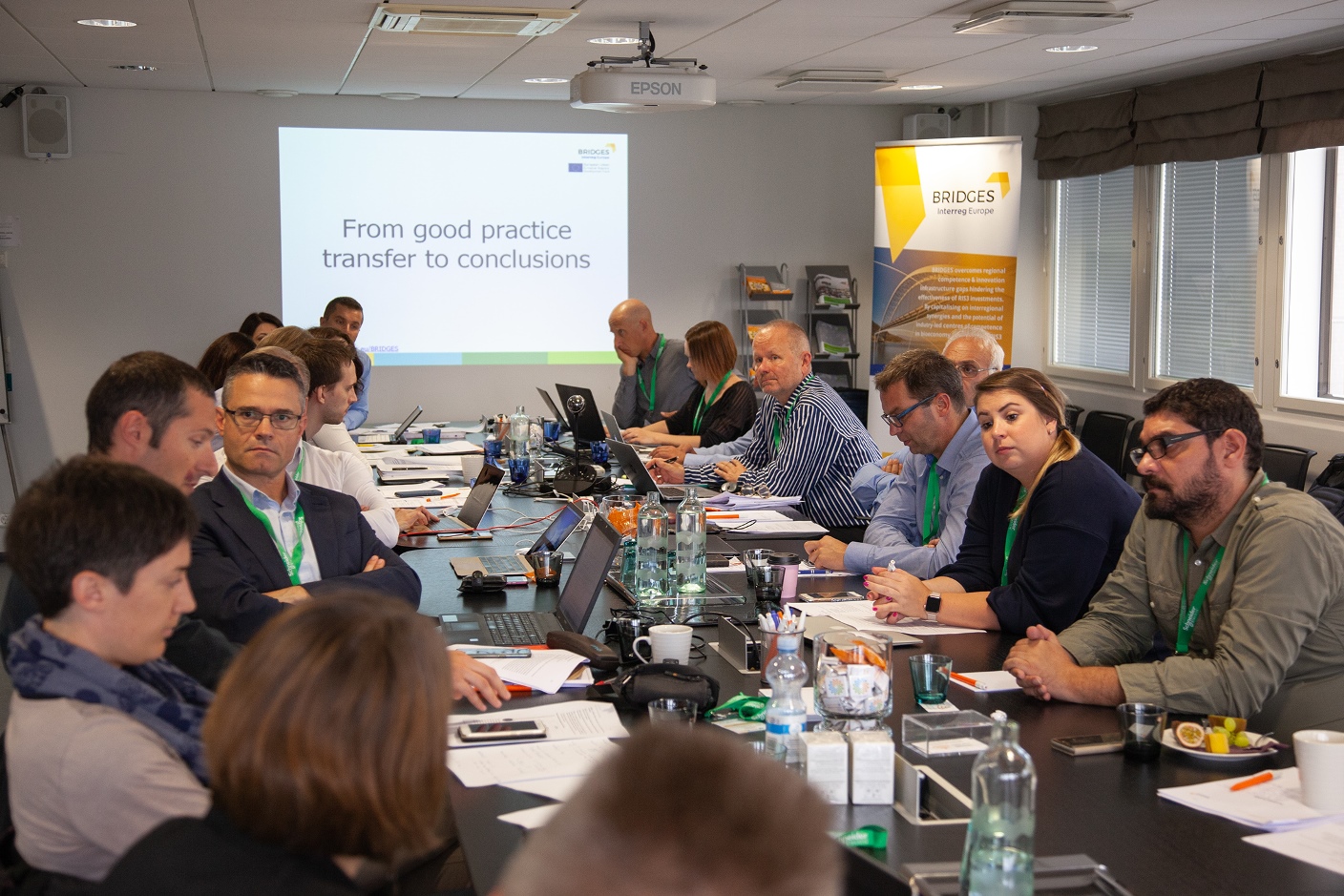The purpose was to understand how these leading companies, carefully selected, perceive innovation, what are the real challenges they face, verify the quality and findings of innovation map created by ANKO at earlier stages and how BRIDGES’ actions can influence their strategy and activities. Opportunities for transregional cooperation on creation of innovative new products and transition to smart farming model were also two main fields to explore.
In all –but 2- cases, BRIDGES team met the entrepreneurs that run the companies, while in the 2 cases met the Directors or/and chief of staff. Duration of all visits was over 3 hours examining in detail the whole function of each company.
The main findings of the study visit are:
- In the most successful businesses – from all innovative one s- the vision for innovation and progress that entrepreneurs have, has been envisioned by all working force, no matter which their positions are. That fact leads to smooth operation of a company and creates a climate of continuous incremental innovation, while it supports innovation of large scale when it occurs. Moreover, such culture creates a strong bond with the community / place that hosts the business and innovation is being diffused –in various ways- to the whole area.
- Existence of (even small) R&D department in a company secures continuation of efforts to achieve and maintain innovation, either by outputs’ capitalization of research projects after their end or adopting innovation and technology produced elsewhere.
- The cooperation dipole of big company from abroad with an innovative SME from the Region of Western Macedonia is the most often case of creating innovation(s) that lead to new product development and well-paid jobs’ creation. Adoption of modern technologies, certified quality of products, exploitation of distribution networks and joint training courses are among the factors that stimulate innovation in a win win situation. Transregional cooperation in the agro food sector in Region of Western Macedonia is based on that cooperation scheme.
- Cooperation culture among complementary companies or companies of the sub sector is still missing. Lack of trust leads to delays or cancelation of new novel products development that need contribution from more than one company. Even in cases where such products are finally developed, they are delivered too late to bring competitive advantage to SMEs.
- The definition of innovation differs depending on the sub sector of the agro food one. Problems solved in a sub sector many years ago, could still be a challenge for another. Therefore, each sector needs specific attention and frequent mapping of problems to be solved to enhance innovation at permanent basis.
- Industrial modernization of agro food sector in regions lacking behind, cannot be achieved without a wide consensus among all stakeholders and a coherent, efficient action plan. Businesses alone – even the bigger and most innovative ones- are not in position to lead that effort. BRIDGES model seems to be accepted as the most suitable one -with certain adaptation per case- to revive sectors with high innovation potential.
- Benchmarking of a sector’s technological evolution has been judged as very important by all visited companies. New technologies in other sectors may bring innovations in agro food sector. Basic technological equipment –if selected wisely- can lead to different choices for new products development. Smart farming applications provide solutions to long lasting problems of agro food sectors and thus open ground for innovation. Research / academic institutes and supporting structures have a significant role to play.
BRIDGES’ efforts to stimulate innovation efforts at regional level, that will increase economic growth and jobs creation in a sustainable way, are being strengthened by the results of the study visit. Such interactive activities contribute further to optimization of Action plans, main BRIDGES activity.













